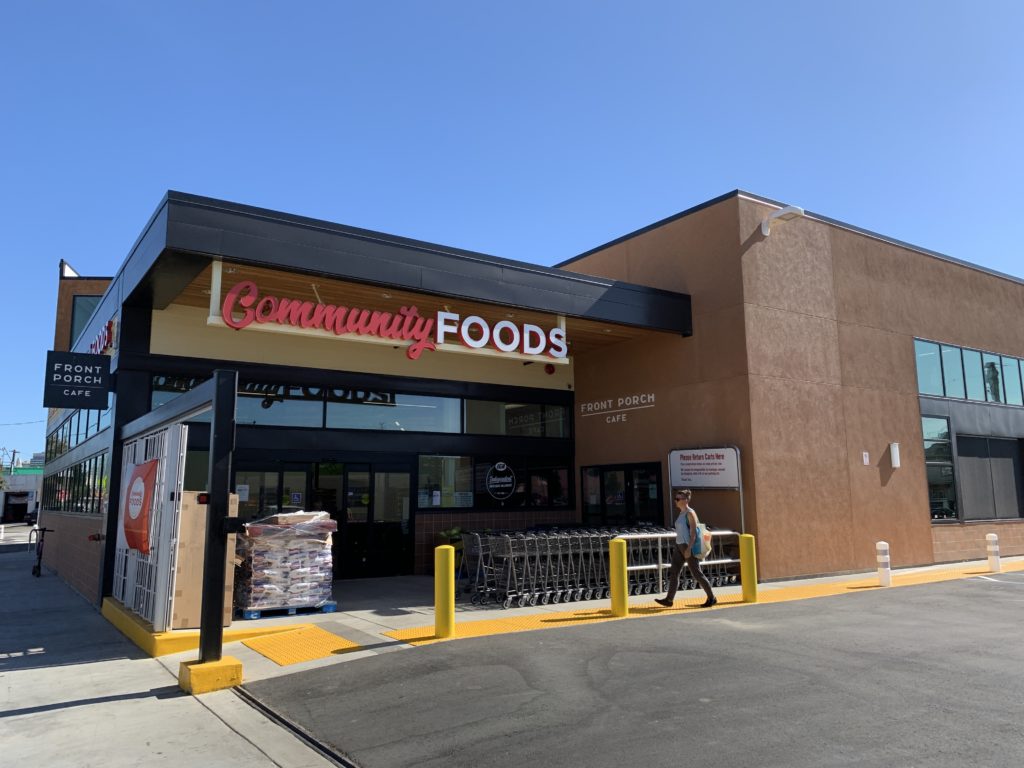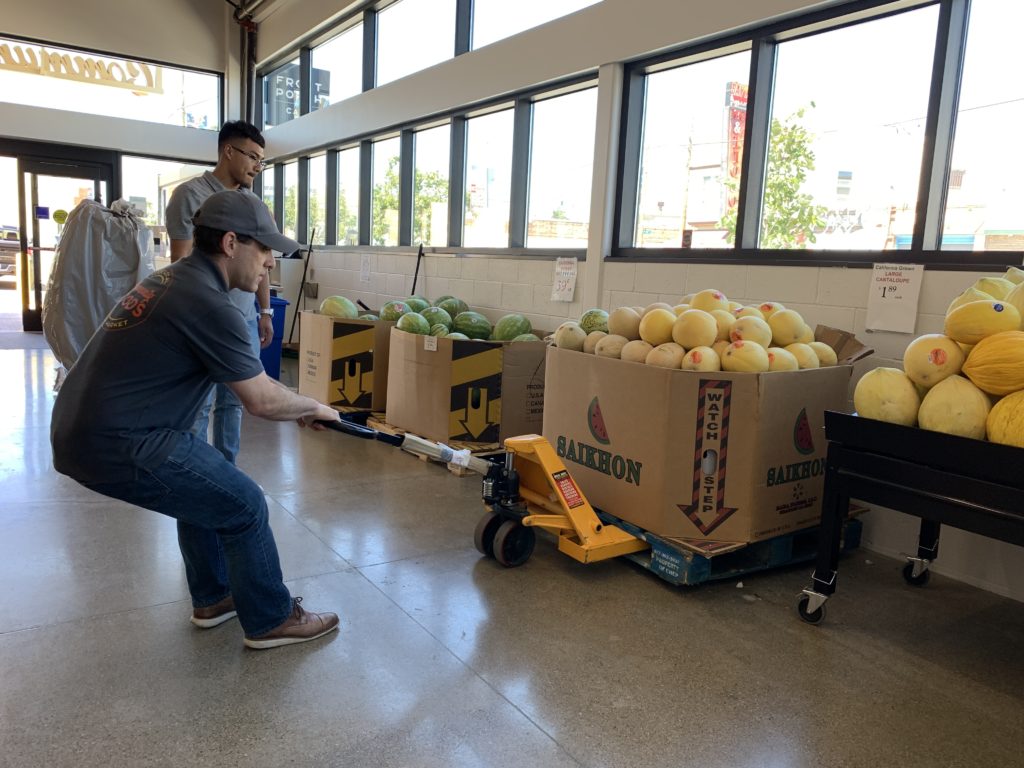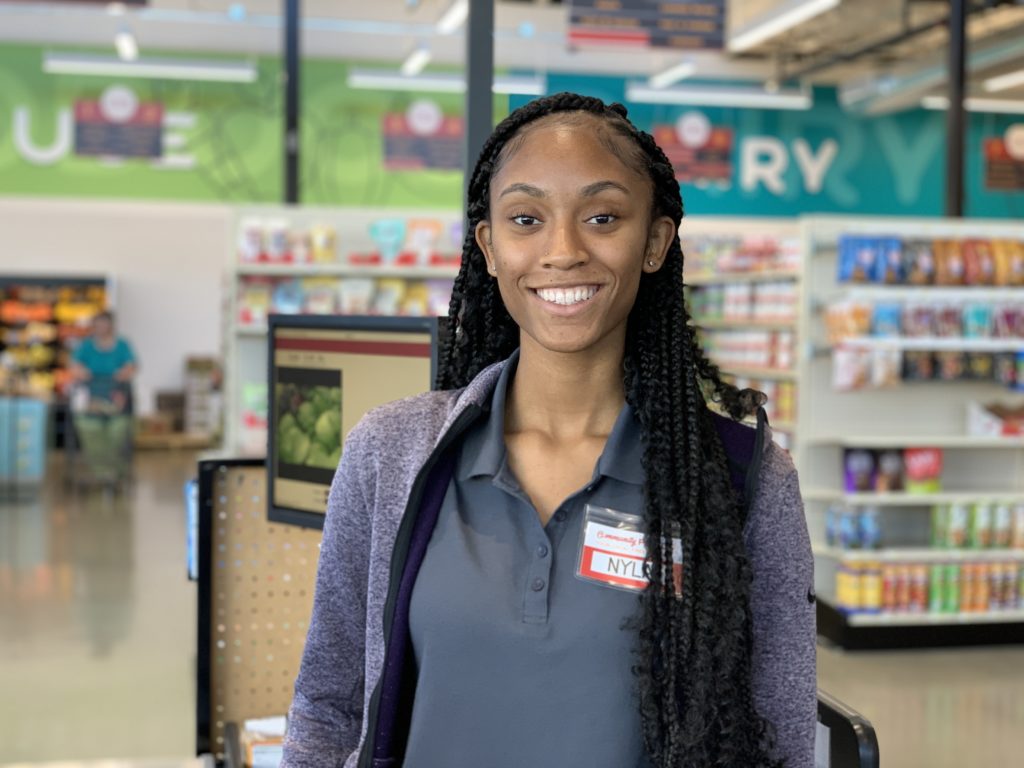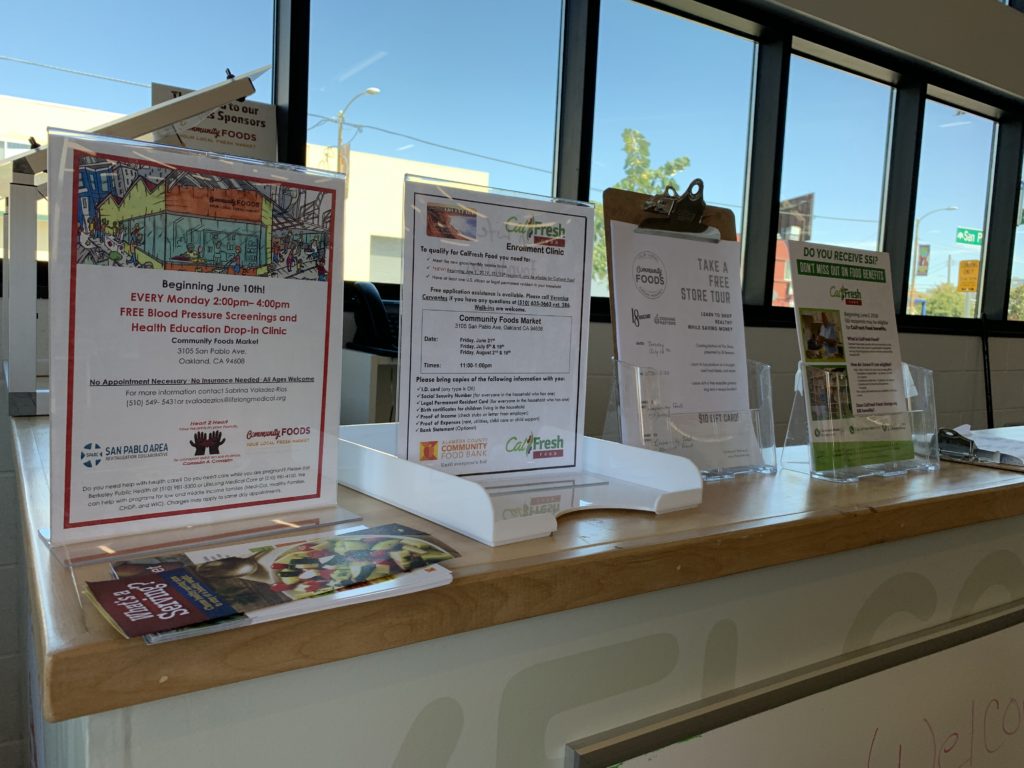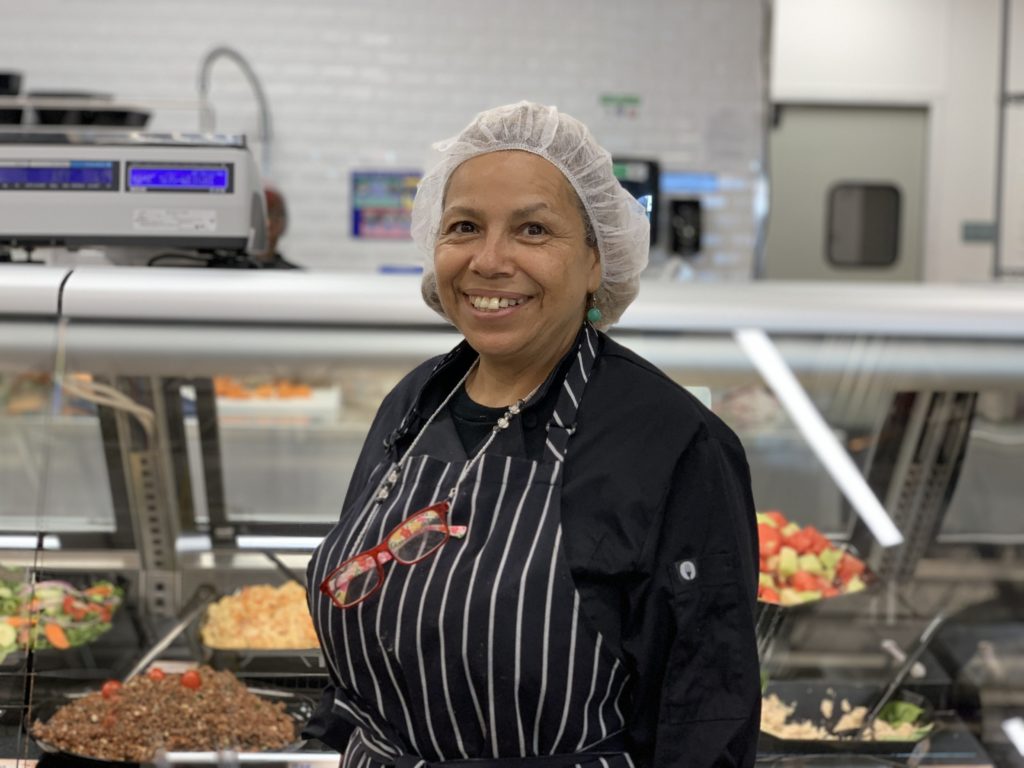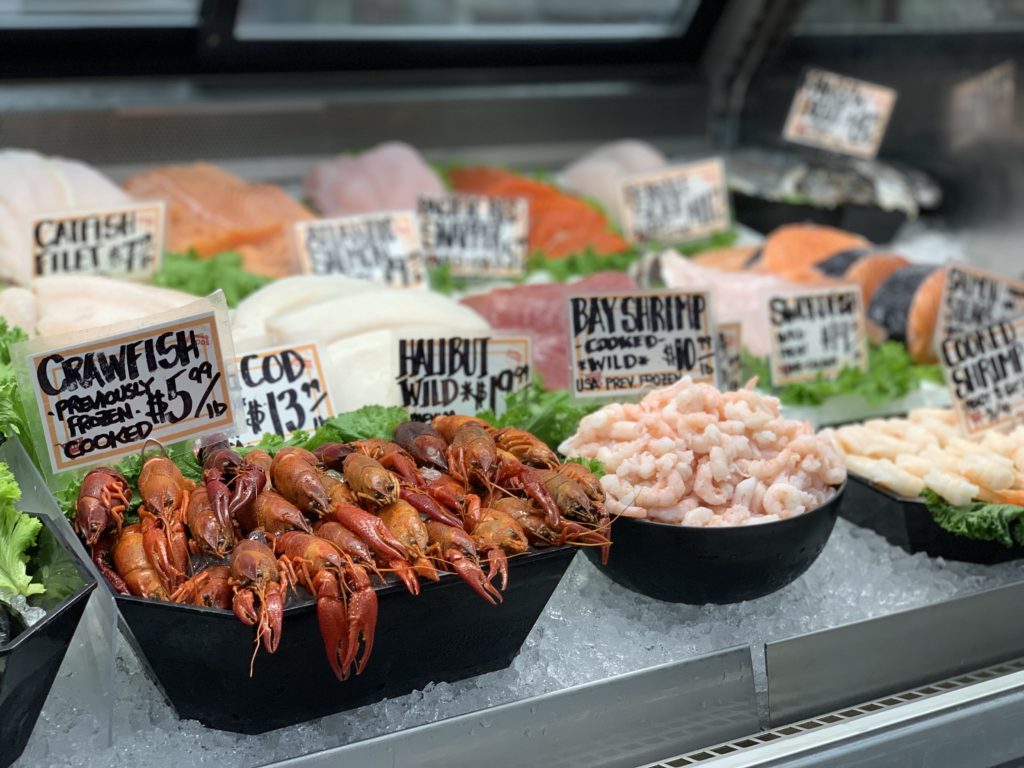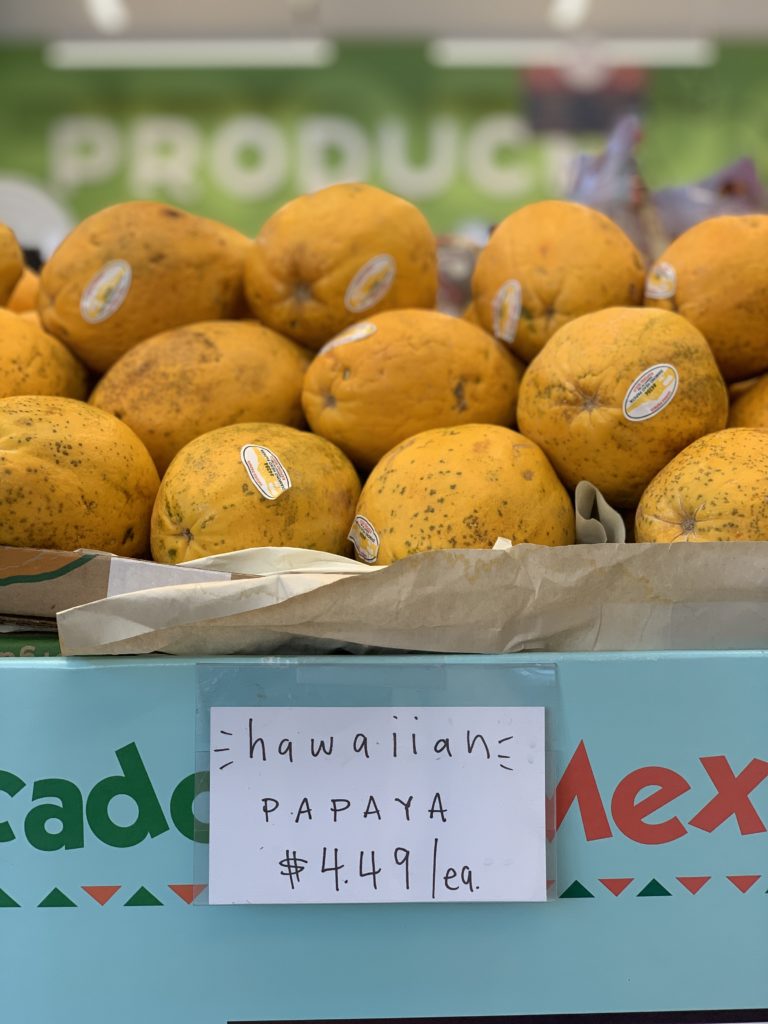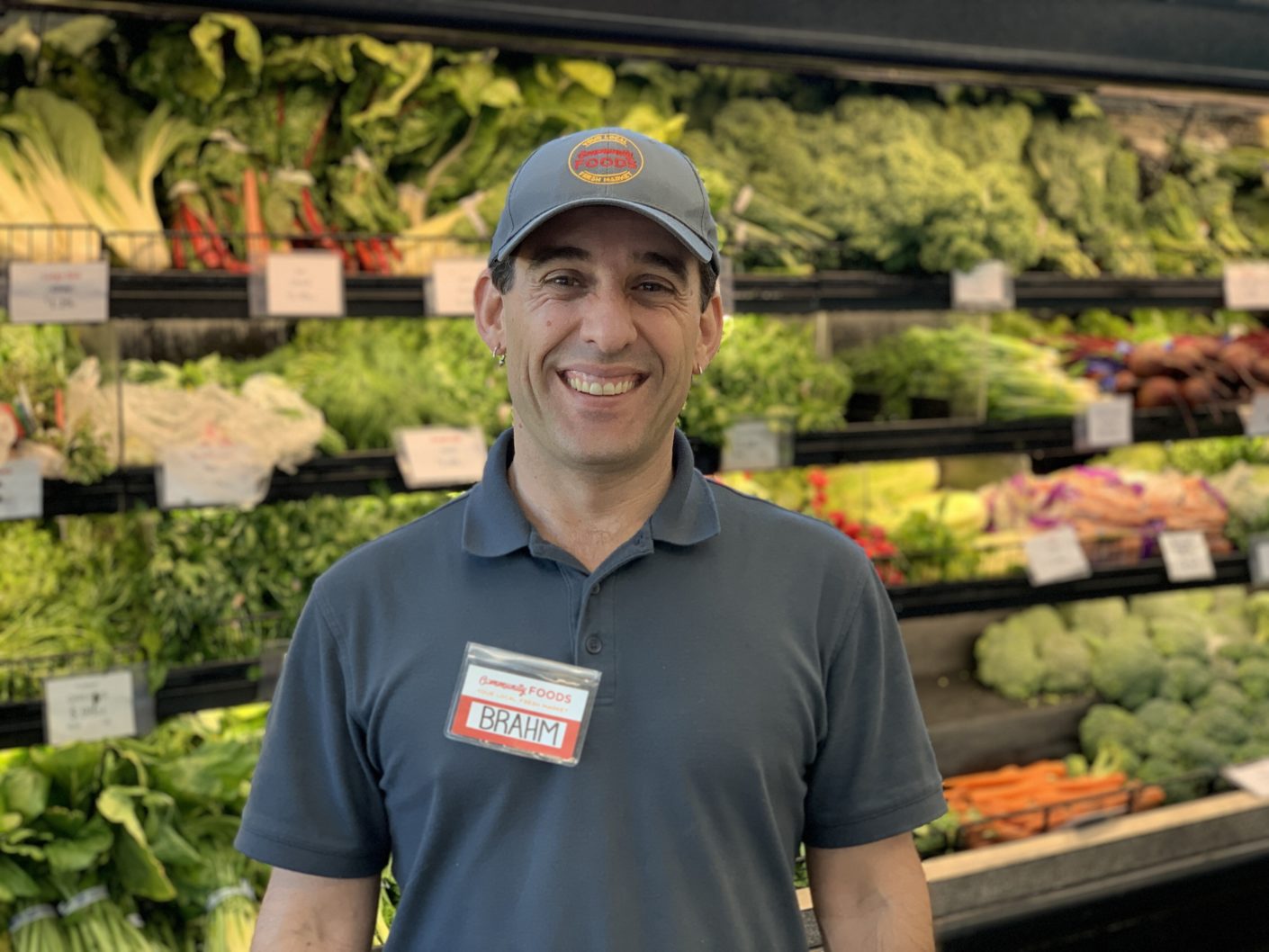The fresh produce is piled high, colorful and glistening with water droplets: Hawaiian papayas, Napa cabbage, organic Gala apples. A gaggle of staff rearrange huge cardboard boxes of cantaloupes and California seedless watermelons. Just six weeks ago, Community Foods Market became the first grocery store to open in West Oakland’s San Pablo Corridor since the 1970s. With a median household income of $36,177 and 32% of its residents living below the Federal poverty level, the neighborhood of West Oakland, designated a “food desert” by the U.S. Department of Agriculture, has long been neglected.
The market’s founder and CEO, Brahm Ahmadi, moved to the neighborhood in 2000. A longtime community organizer, Ahmadi first came up with the idea of opening a grocery store in the Corridor in 2013, but it took more than six years to secure the site, financing, and permits. “It was a classic case study,” he says, “of every possible barrier that prevents food deserts from getting grocery stores.” After a string of angel investors declined to fund the project because the neighborhood was “too sketchy,” Ahmadi finally turned to the community in pursuit of an unusual form of financing: a direct public stock offering.
The financing model came from Cutting Edge Capital, a law and consulting firm in Oakland. The process was slow, but Ahmadi and his team ultimately raised more than $2 million from 650 founding shareholders. The minimum investment was $1,000 (500 shares at $2/share), but subsidies from an anonymous donor allowed individuals to invest as little as $100. A few institutions, including churches and nonprofits, bought shares, but 80 percent of investors were individual Oakland residents with a wide range of household incomes.
First and foremost, Ahmadi wanted Community Foods Market to be a sustainable economic anchor in the community that would not only give residents convenient access to fresh food but also support healthier lifestyles. Community members asked for Ahmadi to build in a café – they wanted a destination where they could socialize, enjoy a cup of coffee or a meal, engage with their neighbors, and really build community. “Food brings people together,” he says. “It builds bridges. And grocery stores are fundamental building blocks of any community.”
Today, Community Foods Market boasts not only a wide selection of non-perishables but a lavish produce section, a deli, a butcher, a bakery, and a full-service cafe. It employs roughly 60 staff members, many of whom live in the neighborhood, such as Nyla Floyd, a recent high school graduate who works as a cashier. “The employees actually want to be here,” she says. “In just six weeks, we already have regulars who I know by name, and they know me.”
The market partners with nonprofit organizations to provide free programming for community members, including blood pressure screenings and food and health seminars on topics including food assistance enrollment and how to prepare meals when you don’t have access to a full kitchen – an important skill for neighbors living in single room occupancy apartments.
One of the benefits of being a small, independent store is flexibility and creativity. Their produce manager, Fugimoto, has relationships with local farmers and keeps his ear to the ground for opportunistic buying that makes it possible to offer customers low prices for high quality produce. In June, for example, they acquired a palette of greens to sell for pennies on the dollar when trucks heading east were forced to turn around due to summer snowstorms.
Ahmadi, who also founded the nonprofit People’s Grocery in East Oakland in 2003, says that he may bring his grocery collective idea to other neighborhoods in the future. But first, he says, “I want to see how we can continue to increase our impact here.”
The San Francisco Foundation deposited $500,000 of the Bay Area Community Impact Fund with Self-Help Federal Credit Union (SHFCU). SHFCU uses deposits like SFF’s to make loans to low- and moderate-income individuals, nonprofits and enterprises benefitting Bay Area communities. In 2017, SHFCU made a $1.985 million 1-year bridge loan to Community Foods Market to complete the construction of their 14,174-square foot grocery store in West Oakland. SHFCU has lent out over $242M in the Bay Area over the last decade, with 84% of their loans going to low-income families and individuals.
